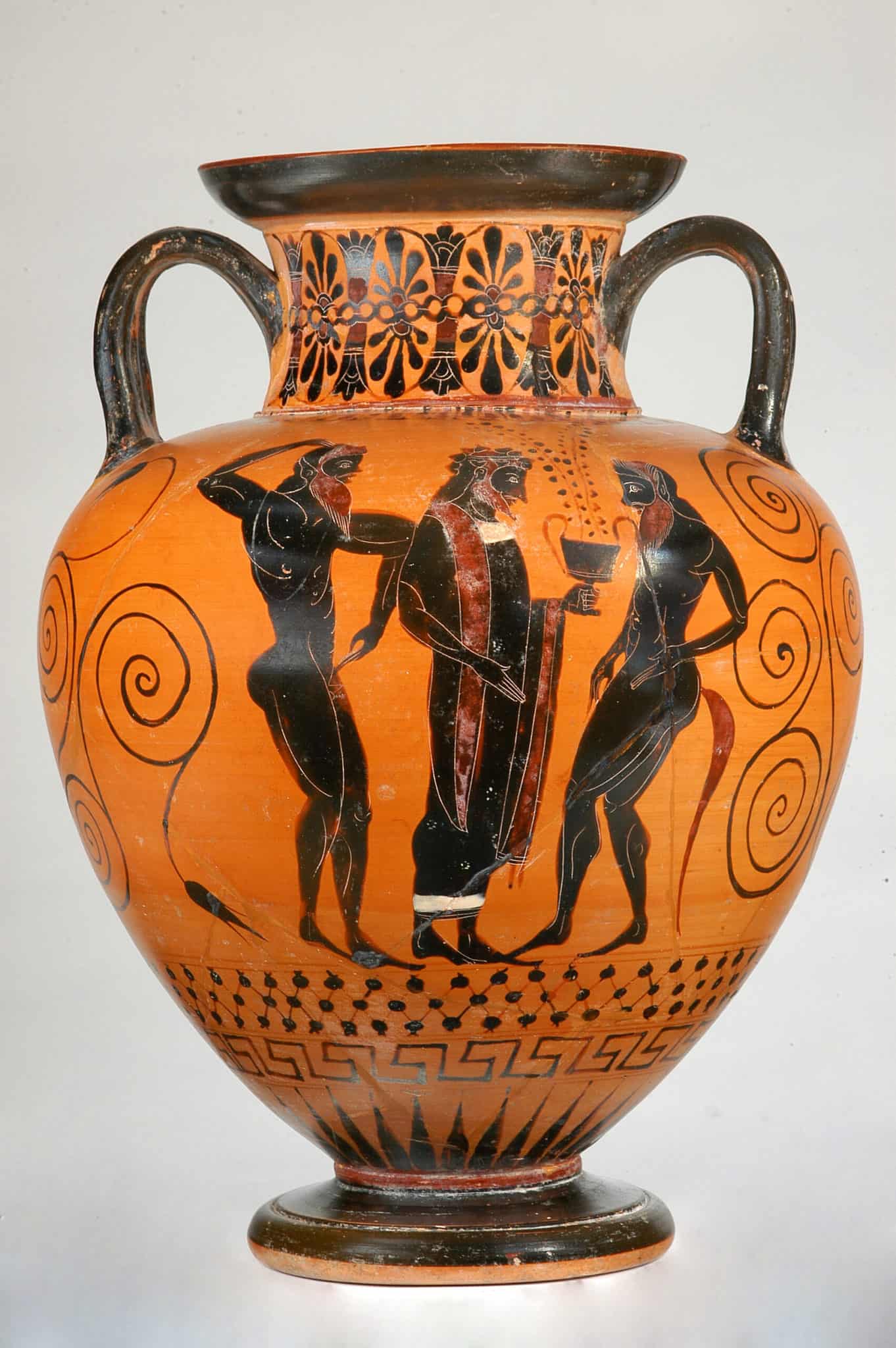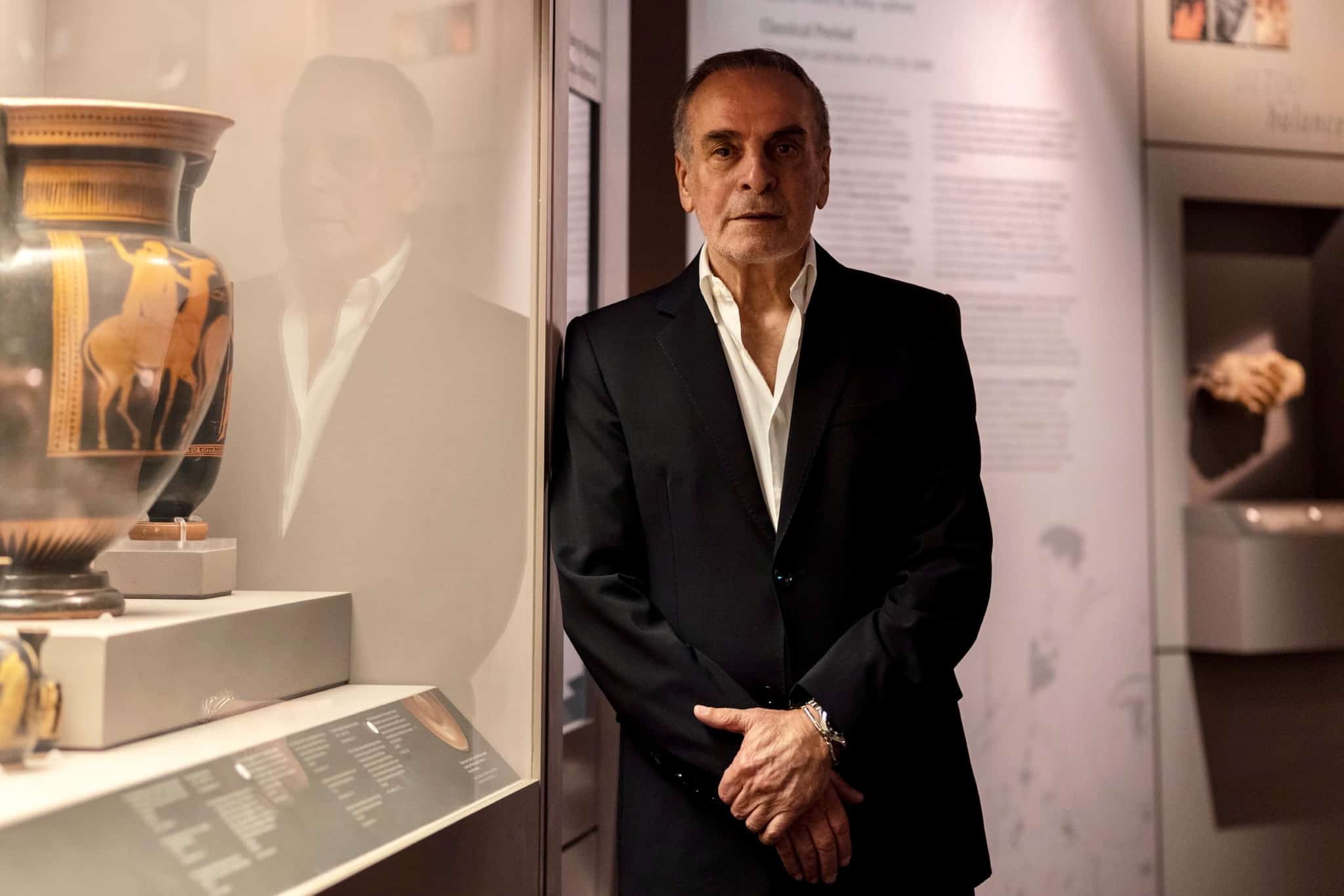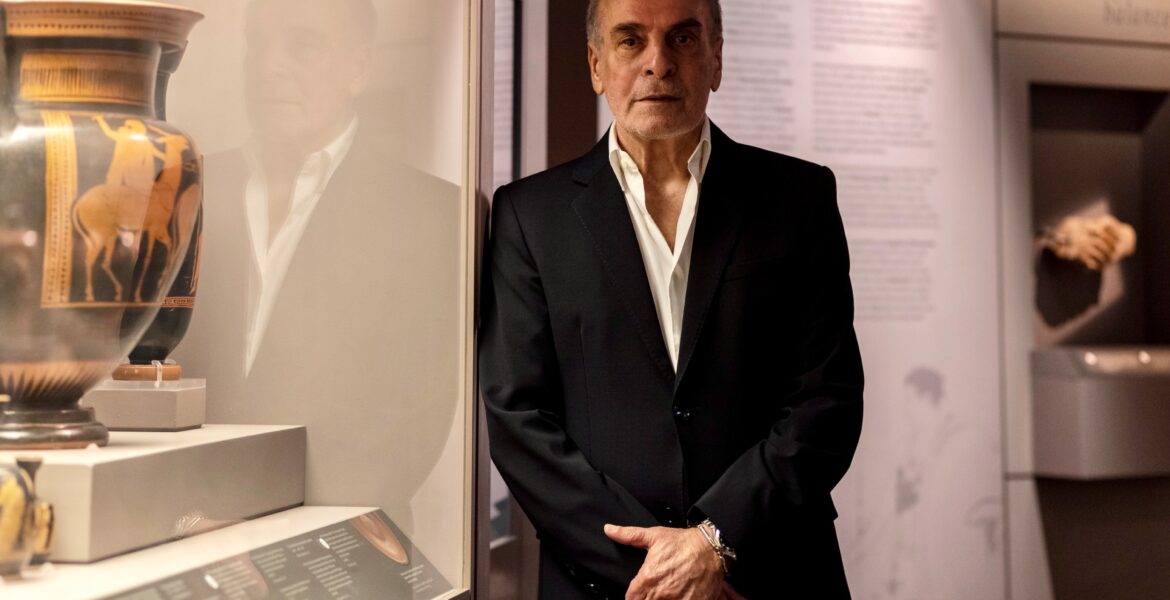A new archaeological exhibition, on the theme of ancient theatre, is scheduled by the Museum of Cycladic Art in Athens for late 2023. The new exhibition, the title of which will be announced shortly, is the first to be curated by the Museum’s new Scientific Director, Dr Nikolaos Kaltsas.
Subject of the exhibition is ancient drama as an expression of democratic thinking. Sculptures, vases with depictions of scenes from tragedies, small-scale objects relating to the costumes of actors and the cult of Dionysus, god of theatre, will be loaned from museums in Greece and Europe, aspiring to convey to visitors the deeper meaning of ancient drama, as well as its educational and recreational role.

Ancient theatre originally had the form of cultic ritual performances. It was linked with the worship of Dionysus, god of vegetation and fertility. Dionysus was also the God of reversal which led mortals to ecstasy and liberation from daily routine. Within only half a century, talented poets such as Aeschylus, Sophocles and Euripides, inspired by episodes in mythology, composed works structured with a beginning, a plot, and an end, which is the successful definition given to Tragedy by the great philosopher Aristotle. With texts that promoted ideas and approached moral, social and political issues, the dramatists ‘taught’ the spectators, who all attended the theatrical performances for free with no exception, including even slaves. Cornerstone of this freedom of expression is Comedy, the genre expressed primarily by Aristophanes, who, with his satire, commented on stage about the ills of society and the state.
Ancient Greek tragedy was the archetype for the writing of analogous plays during the Roman period too, by Seneca and Quintus Ennius. The tradition was continued in the Renaissance and later, by authors such as Racine, Voltaire, Alfieri, Shakespeare, Goethe, and others, while Tragedy was the source of inspiration for the creation of another theatrical genre, Opera.

As Dr Nikolaos Kaltsas, Scientific Director of the Museum notes:
‘If isegoria, the equal right of all to freedom of speech in public, is one of the basic components of the Athenian Democracy, then it is no accident that, when the seed of this political system was sown in Athens, on the lower south slope of the Acropolis, theatre developed, as an expression of free democratic thinking. In Tragedy the myth is merely the pretext; everything else is the creation of the poet, who, on stage, poses dilemmas, judges, condemns, praises, doubts, and leaves the spectator to choose side. Mainly, however, he leaves him with questions. On the other hand, Comedy did not use any mythical place and time, only the city of Athens at its present time, commenting caustically on current circumstances. Just like a miracle this perfect poetic-theatrical genre, was born in Athens and achieved greatness 2,500 years ago while it continues to be relevant today. With plays of the tragic poets performed by leading theatre companies not just in Greece but all over the world, theatre still moves and fascinates the audience. Distinguished Greek and celebrated foreign directors, such as Dimitris Rontiris, Karolos Koun, Peter Stein, Max Reinhardt, Bob Wilson, Yukio Ninagawa of the Νο theatre, have staged ancient Greek tragedies to great acclaim. Here at the Museum of Cycladic Art, we have selected Theatre as the theme for our next exhibition, since so far no exhibition has been presented which ‘teaches’ ancient drama in all its breadth, from its birth as cultic ritual performances to its development and its perfection as supreme literary and theatrical genre.’


